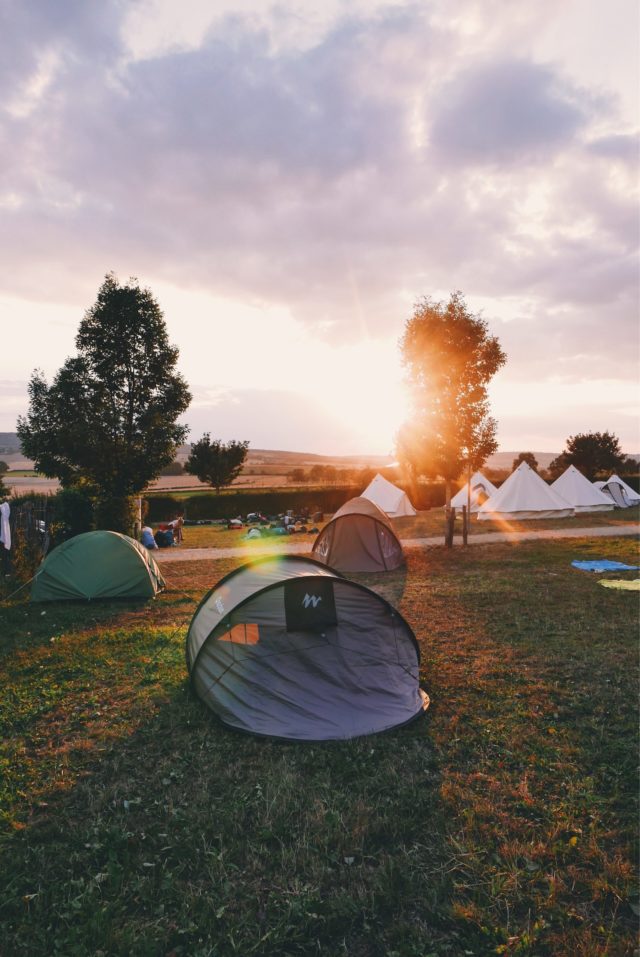Sectors we serve
How we help festivals and the live music sector
Festivals are often big complicated things. Here, we explore the basics, together with shining a light on some of the darker crevices.
The basics
If you want to sell alcohol or provide live and/or recorded music to more than 500 people or after 11:00 pm then you will almost certainly need a premises licence under the Licensing Act 2003.
For alcohol, you will need a Designated Premises Supervisor who holds a Personal Licence and you will have to complete an application form together with detailed layout plans. This application is either sent by post to the Licensing Authority together with several other so-called “Responsible Authorities” or (and this is the first tip) if you send it via the Licensing Authority’s electronic facility (if they have one, and most do) the Licensing Authority will send it on for you, saving you postal and printing costs, as well as time in checking that the addresses for these Authorities are all up to date and that you have served them correctly.
If there are no objections to your application it should be granted after 28 days. If there are objections, you would normally expect to have a hearing within two months of originally issuing the application.
So far, so good. Except that if you are planning on having a new festival or large outdoor event in June and think that you can, therefore, issue your application at the end of March/beginning of April you are probably living in cloud cuckoo land.

Festivals and live music
Pre-Application consultation
Most councils have Safety Advisory Groups (“SAGs”) which are non-statutory bodies made up of relevant agencies to help you run a safe event, one that is not ridiculously noisy and does not clog up the local streets or country lanes for three weeks either side.
Many Authorities like to be contacted at least a year to six months before a new event in order to provide this important advice.
Whilst they are by their very name “advisory”, some of the Responsible Authorities (the Police, Environmental Health, Health & Safety, and Licensing for example) have the power, if necessary and justified, to prevent your event going ahead or at least to impose terms which are not commercially viable for you.
Consult them early, and heed their advice – they need to know that you know what you are talking about.

Location
Festivals and outdoor events are often on greenfield sites, which do not always have an obvious perimeter. When you make your licensing application ensure that your layout plans delineate this clearly – this has a legal effect in terms of sales of alcohol and whether these are on or off the “premises”, capacity limits and the general requirement that everybody must know exactly where your festival is taking place.

Are you going to show campsites and car parking areas on the plans (we usually do) – if people are buying drinks and taking them back to their tents but the campsite is not shown on the plans then you will need to be authorised for “off-sales” of alcohol.
Is your proposed location likely to cause noise issues with local residents? Think through at an early stage where the stages will be, which direction the speakers will face and the general lie of the land. Engage residents early and explain your proposals.
Festivals and live music
The Landowner
Some landowners, be they stately home owners, farmers or whoever, have tapped into the lucrative festival market. Does your landowner have a premises licence already that you can use?
Is it suitable for your purposes or are there conditions or limits on hours of operation that you do not like? The landowner may even not be prepared to let you use their licence for fear that you, being a “one-off” event will not respect the terms of that licence, cause an almighty rumpus whilst you are there and then move on to another location for the next year, leaving him to defend a licence review. Many in these circumstances will expect you to obtain your own premises licence.
Whether you use your own licence or the landowner’s, make sure you check both it and your contract with a fine tooth comb – if the Environmental Health Officer steps-in a month before the event saying that it simply cannot go ahead with the decibel levels that you propose and that he will issue an anticipatory Noise Abatement Notice if you proceed, who is going to be liable to pay for cancellation fees / refunds in any resulting litigation between you and the landowner?
Also, some landowners have so many individual events on their land that they exceed the permitted 28-day planning limit on events per year (unless their planning permission allows otherwise). Do not be the festival that cannot go ahead that year because your host is giving you the “29th day”.
Make sure there are no restrictive covenants on the land or that any listed building status of associated buildings prevents you from putting on the event that you want.

Copyright
Some people believe (or convince themselves) that obtaining a licence under the Licensing Act 2003 covers their obligations under copyright law. This is of course nonsense. Check that you are paying the correct tariffs to PPL PRS where applicable as well as any associated video copyright requirements.

Data protection
The processing of personal information (for example, filming festival goers either by CCTV or for promotional purposes, or retention of personal data through ticket sales) carries with it certain obligations under data protection law. Make sure you are not breaching these.
Festivals and live music
Miscellaneous consents
You will want to make sure that you have any necessary road closure orders in place, your public / employers liability insurance (preferably a policy with legal cover for enforcement issues), and your food safety / electrical / gas safety certificates are all in place. These are all SAG-related, but the more confidence you instil in the SAG, the more likely you are to obtain the hours and activities you want with your licence application.
Festivals and live music
The premises licence
The main Authorities you will have to deal with for your licence application will be the Licensing Authority itself, the Police and Environmental Health.
The Licensing Authority will want to make sure that your application is in the correct format (for example, that your layout plans conform to the Regulations), that you are paying the right fee (anything above 5,000 capacity and you will be paying a so-called “additional fee” which can amount to thousands of pounds) and will filter any irrelevant or vexatious objections to your application to hopefully ensure you are faced only with objections based on genuine concerns about noise and so on.
The Police will, of course, be concerned with a wide range of issues. They will want to know about your crowd management policy, your stewarding and door staff companies, how you prevent tent thefts, how you deal with drugs and how you ensure that under-18s cannot purchase or consume alcohol.
Environmental Health in this context will be primarily concerned with noise and will expect you to have liaised early with local residents and Parish Councils and have a detailed noise management plan. Both the Police and Environmental Health have a range of measures, including Noise Abatement Notices (even prior to the event) and closure notices under the Anti-Social Behaviour Crime and Policing Act 2014 that can have the effect of shutting you down almost immediately or before a single song has been sung.
It is worth remembering that most of these officials are much more used to dealing with fixed premises such as pubs, night clubs and off-licences and that confidence is key – if they have seen a detailed, well thought out Event Safety Plan with all the appropriate appendices, have attended SAGs where you have presented a comprehensively thought-out event, and are not being taken by surprise by a last-minute application, then you will find these officials much more likely to be wearing their advisory rather than their enforcement hats. Most are proud to be associated with a successful, well-run event.
Do you plan to have simply a one-off or an annual event? If the latter, you may want to have a time-limited licence which permits your event at the same location, for example, “for a maximum four consecutive days between the months of May and September inclusive” or “the first Friday and Saturday in June each year”, although be careful with how you word such a condition as you do not want to be pinned down unnecessarily.
The benefit of having a time-limited licence is that you do not have to go through the rigmarole of applying every year, although no doubt there will be SAG requirements and notification obligations to residents and the Authorities written into your licence conditions.

Festivals and live music
In conclusion
Planning ahead is critical for any prospective events when it comes to licensing and regulation. Public bodies need plenty of advance notification, and it’s on you to build trust with them by showing careful, considered plans. However, if you can, then more often than not they will be very willing to work with you to put on a successful event.
Finally, the above comments are not exhaustive and if you’re ever unsure about your legal obligations it’s best to consult a professional rather than prodding around in those dark corners alone, only for your efforts to be closed down before the gates even open (but after a large amount of expenditure has been invested).